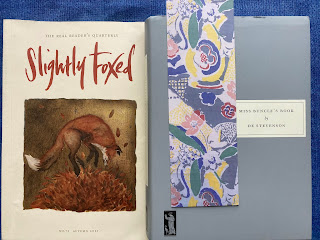Flashback to mid September: 6.00am and a small insistent voice begins a dawn chorus outside my bedroom door, 'Guggy...Guggy...wake UP, Guggy.!'
I fall out of bed, crawl to the bathroom, then totter out onto the landing where the most beautiful 3 year-old in the world is waiting for me to accompany him downstairs to release Archimedes (imprisoned in the kitchen in case he jumps on anyone's head in the night) and begin the day. As we go, we sing.
'Always hold onto the bannister, when you go down the stairs. Always hold onto the bannister, and don't fall down on your ears!' (An original composition which I am beginning to regret as we have now sung it at least a hundred times...)
So, what shall we do first? Build a castle? Set up the Fire Station? Play shop? While emptying the dish-washer, peeling fruit, mixing baby-porridge, making life-saving coffee... I'm the early-riser in the house so this part of the day falls to me. The beautiful 3 year-old's equally beautiful 8 month-old brother is also up but he is being changed by Papa, while Mama tries to stretch the dodgy back that put her in hospital for 6 days when they were one week into their first holiday in Ireland in two years. The original 2 week visit is now nearing a month...
Medical emergencies, round-the-clock childcare, malfunctioning washing machines, a hoover that started leaving a mysterious cat-like odour behind it...the stars have not been perfectly aligned recently, but when daily life turns tough, for me the best medicine is a glass of good wine and a good book. Luckily, I had both.
The first book was sent to me by my sister. At first glance I wasn't sure I'd like it (the words 'International Bestseller' on a cover tend to put me off) but a few pages into The Dictionary of Lost Words by Pip Williams, I found myself soothed, amused and blessedly transported from the trials of daily life by this very enjoyable debut novel based on the making of the first Oxford English Dictionary. The Guardian reviewer called it 'a gentle, hopeful book...balm for nerves frazzled by the pandemic' and I can only agree.
And then I had D.E. Stevenson's Miss Buncle's Book. When I worked in Edenbridge and Southborough libraries a million years ago, I dismissed the rows of Stevensons as middle-aged, middle-class, comfort reading of the dullest sort. Certainly of no interest to my young, cutting-edge self. (At the time I was reading Lessing, Lawrence, Garcia Marquez, and anyone Russian.) But now, older and less concerned with the world's opinions, I read and write for my own pleasure. My only requirements are that the writing pleases me and that I care about the characters, although I can also be seduced by a lovely cover, and this is a beautiful Persephone Books edition.
Miss Buncle is an impoverished, dowdy spinster, condescended to or ignored by most of her acquaintance until she writes a best-seller (under the pseudonym of John Smith) that skewers her self-important and often unpleasant neighbours... It is extraordinarily funny and I recommend it to anyone in need of cheering up. And who isn't, these days?
Slightly Foxed (the Autumn edition) and The Oldie both helped too - and I know I bang on about SF but where else are you going to find Margaret Drabble on Doris Lessing, or Anita Brookner and Mary Wesley rubbing shoulders with Sir John Squire's hymn to British cheese, Cheddar Gorge? Or indeed, an article on the diaries of Charles Ritchie, lover of novelist Elizabeth Bowen and a Canadian diplomat with a singularly memorable turn of phrase? (He described the Duchess of Windsor in later years as looking 'ravaged but unsated...engagingly full of curiosity and with a nose tilted for scandal.')Lastly, two works of non-fiction: Selina Hastings' Sybille Bedford, An Appetite for Life - the biography of a wonderful writer and a fascinating, if perhaps not entirely likeable, woman - and The Seabird's Cry, a book I picked up in a local second-hand shop the day after our own visitors had finally flown home to London. This for Adam Nicolson's extraordinary prose, whether or not you are interested in seabirds and their rapidly disappearing world.
He writes, 'Seabirds somehow cross the boundary between the matter-of-fact and the imagined. Theirs is the realm both of enlargement and of uncertainty, in which the nature of things is unreliable and in doubt.' And he quotes Seamus Heaney:
What came first, the seabird's cry or the soul
Imagined in the dawn cold when it cried?
How habitable is perfected form
And how inhabited the windy light?
'Heaney's imagined soul-seabird is not only the great boundary-crosser,' says Nicolson, 'but linked to the emergence and genesis of things. The seabird's cry comes from the beginning of the world.'
A wonderful book.



